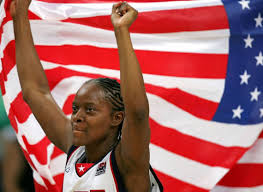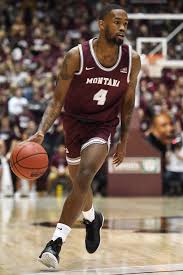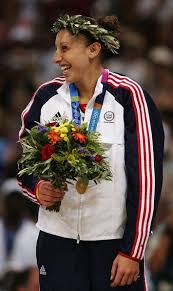The NBA Finals date back to 1947 (when they were known as the Basketball Association of America Finals) and the very 1st NCAA tourney was held in 1939. Olympic basketball competition is even older: it debuted as a demonstration event in 1904 and the men’s version became a medal sport in 1936, with the women finally getting their chance to go for the gold in 1976. The United States has dominated Olympic basketball competition from the start: the men have won 15 gold medals in the 18 tournaments they have participated in during the past 84 years, while the women have won 8 gold medals in the 10 tournaments in which they have competed during the past 44 years. Those of you who were looking forward to the 2020 Olympics opening ceremonies in Tokyo on July 24, 2020 will have to wait an extra 364 days, as the coronavirus caused a postponement until July 23, 2021. Due to the absence of college basketball since mid-March, HoopsHD’s Jon Teitel decided to fill the void by trying to interview as many prior Olympic players/coaches as possible so that you have something to read this summer while not watching the Summer Games. We continue our coverage by chatting with Shannon “Pee Wee” Johnson about winning back-to-back ABL titles and a gold medal in 2004. Today is her birthday so let us be the 1st to wish her a happy 1!
Your nickname is “Pee Wee”: who gave you the nickname, and did you see your 5’7” height as an advantage or disadvantage on the court? My nickname was given to me by my volleyball coach Debra Tyner. I was in the 6th grade and was the smallest player on the team so she gave me the nickname. My height was never a problem for me in the league: I just worked my butt off to be a good player every year.
You grew up in Hartsville, SC and won a pair of AAAA state titles in 1990/1992: what made you choose South Carolina for college? I chose to attend the University of South Carolina because of my relationship with the coaching staff. I also liked that it was close to home: being only 1 hour away meant that I could visit home on a regular basis.
In January of 1996 you scored a school-record 50 PTS in a win over Appalachian State and you remain #1 in school history with 20.4 career PPG: what is the secret to being a great scorer? The secret to being a good scorer is the work you put in before the games. Every day I worked on my craft and my teammates/coaches pushed me daily to better my game. I was very disciplined and had a strong work ethic, which helped me get stronger/faster.
You played for the Columbus Quest and won a pair of ABL titles in 1997/1998: what did it mean to you to win a pair of titles, and how on earth were you able to win the 2nd title after Coach Brian Agler left in the middle of the season?! To win a championship at any level is an indescribable feeling. You feel on top of the world with so much emotion. You laugh, cry, and hug anyone/everyone. We won both titles with Coach Agler and he did leave the 3rd year for the WNBA. We were a very strong group and continued to play hard under player/coach Tonya Edwards before the league folded midway through that year.
You were a 5-time WNBA All-Star and also played in Spain/Italy/Turkey/Poland/Russia: what is the biggest difference between basketball in the US vs. basketball overseas? The biggest difference during that time was that the players overseas were so fundamentally sound and most Americans played with their athleticism. Now you cannot tell the difference because the game has grown on both sides. Players now are working more on their weaknesses and perfecting their strengths.
In 2004 your jersey was retired and you were inducted into the South Carolina Hall of Fame: where does that rank among the highlights of your career? Having my jersey retired is at the top of my list of favorite career moments. All of the work during my collegiate career paid off and I will always be remembered for that work. I thank my coaches/teammates for always encouraging and supporting me. It was because of them that my jersey is hanging up in the rafters.
You played for team USA at the 2004 Olympics: what did it mean to you to win a gold medal, and could you have ever imagined that your teammate Dawn Staley would end up becoming a national champ at your alma mater and head coach of team USA? Winning a gold medal was and is the highest achievement of my career. Playing with the 12 best players and representing our country in 2004 in the birthplace of the Olympics in Greece was awesome. I still get emotional watching the game and the gold medal ceremony. Playing with Dawn was the best because she is a great leader and made everyone feel important. She is also my mentor/role model so following her greatness was important and very easy. I am so happy and proud of her continuing to help team USA grow and succeed. She will be a great coach to lead our team into the next Olympics.
In the decisive Game 5 of the 2007 WNBA Finals with Detroit you had 13 PTS/8 AST in a loss to Phoenix (who become the 1st team in WNBA history to win a title on the road): where does that rank among the most devastating losses of your career, and how did Penny Taylor (18-18 FT) almost make as many FT as your entire team (19-25 FT)? Losing the 2007 Finals was very hard to accept: both teams played great but there has to be 1 team that wins and 1 team in 2nd place! Penny Taylor is and will always be a great player and I have much respect for her game.
Your 1424 career AST remains #9 in WNBA history: what is the key to being a great PG? Anytime you are in the top-10 in any category it is a good feeling. The game has grown so much and records are made to be broken. The key to being a great PG is to make others around you better.
You spent the past 5 years as head coach at Coker University before resigning last week: how did you like the job, and what impact did the coronavirus have on your job either on or off the court? I loved being the head women’s basketball coach at Coker because it gave me a chance to give back to the sport that I love so much. The coronavirus has changed all coaches’ jobs to working from home. Basketball is a sport that you teach and not being able to have time with your players is a loss. We do talk on the phone or message the players but it is different now because they cannot stop by or vice-versa. We all understand the time that we are in now and hopefully we can get back to playing/coaching basketball.










